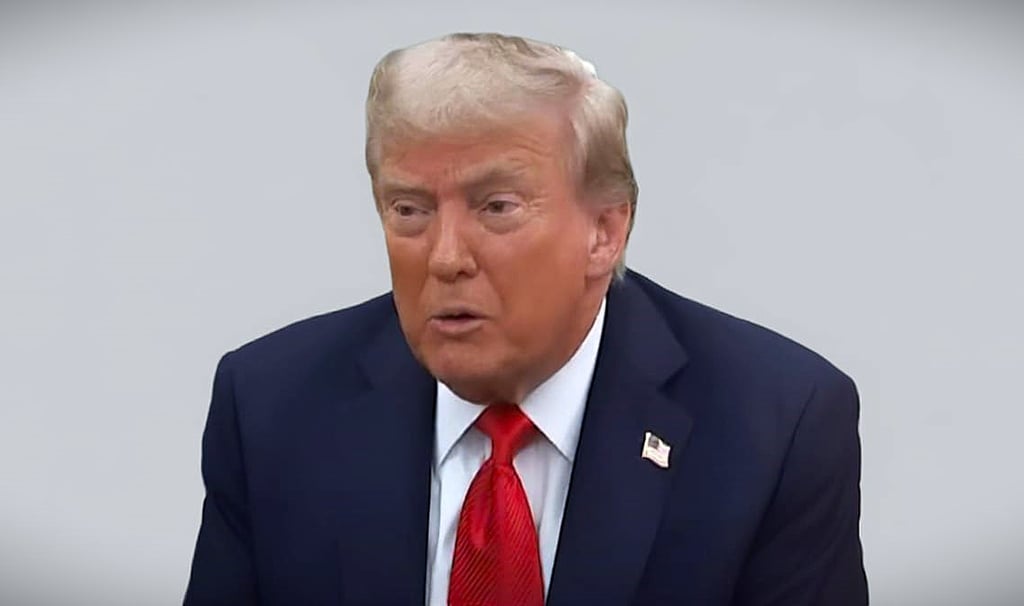Trump Confirms Deep U.S.–Hamas Negotiations | Gaza Hostage Crisis 2025
On 6 Sept 2025, Trump confirmed “very deep” U.S.–Hamas talks to free Gaza hostages, warning Hamas of severe consequences if no progress is made.
Raja Awais Ali
9/6/20252 min read


Trump Confirms “Very Deep” U.S.–Hamas Negotiations on Hostage Release
On 6 September 2025, U.S. President Donald Trump announced that Washington is engaged in very deep and serious negotiations with Hamas to secure the release of hostages still held in Gaza. This statement immediately captured global attention and signaled a dramatic shift in American foreign policy.
For decades, the United States has officially avoided direct talks with Hamas, which it designates as a terrorist organization. However, Trump’s revelation shows that the scale and urgency of the hostage crisis have compelled a new approach.
According to reports, about fifty hostages remain in Hamas custody, with only around twenty confirmed alive. Most of them were abducted during the October 2023 attacks, when Hamas militants killed nearly 1,200 people in Israel and kidnapped more than 250 others. Some were released in earlier swaps, but the fate of many remains unknown, creating immense pressure on both Israel and its allies, especially the United States.
Trump emphasized that while certain demands from Hamas might appear reasonable on the surface, Washington will not compromise when it comes to the safety of innocent hostages. He issued a stern warning that if Hamas fails to move swiftly on their release, the consequences would be extremely harsh and bitter, a message consistent with his tough diplomatic style.
The negotiations, according to regional sources, include talks around a potential temporary ceasefire and a prisoner exchange, which Hamas insists upon. Meanwhile, Israel maintains its position that only a complete release of all hostages and eventual disarmament of Hamas will be acceptable. This puts the United States in a delicate position, trying to bridge demands without undermining its allies or appearing to legitimize Hamas.
Meanwhile, the humanitarian crisis in Gaza continues to deepen, with thousands killed in ongoing Israeli military operations and millions displaced or facing acute shortages of food, water, and medicine. Trump acknowledged the suffering of civilians but made clear that securing the hostages’ release remains the immediate non-negotiable priority.
The announcement has drawn mixed responses worldwide. European leaders and the United Nations cautiously welcomed Trump’s move as a potential breakthrough, though many warned that failure could inflame the conflict further and intensify instability across the Middle East.
Human rights groups have urged negotiators to consider both the fate of the hostages and the desperate needs of civilians in Gaza, highlighting that any progress in negotiations must also reflect humanitarian concerns.
Trump’s decision to directly engage with Hamas represents one of the boldest diplomatic steps of his presidency and could reshape U.S. policy in the region. Supporters argue it is a practical response to a dire situation, while critics fear it risks legitimizing the very group responsible for the crisis.
Families of hostages across Israel and abroad are now watching closely, their hopes pinned on the possibility that this strategy will succeed where previous approaches have failed.
As of today, the world waits to see whether Trump’s “very deep” negotiations with Hamas will bring relief and freedom to those held captive, or whether the gamble will intensify an already fragile and dangerous situation in Gaza and beyond.
Stay informed with the latest national and international news.
© 2025. All rights reserved.